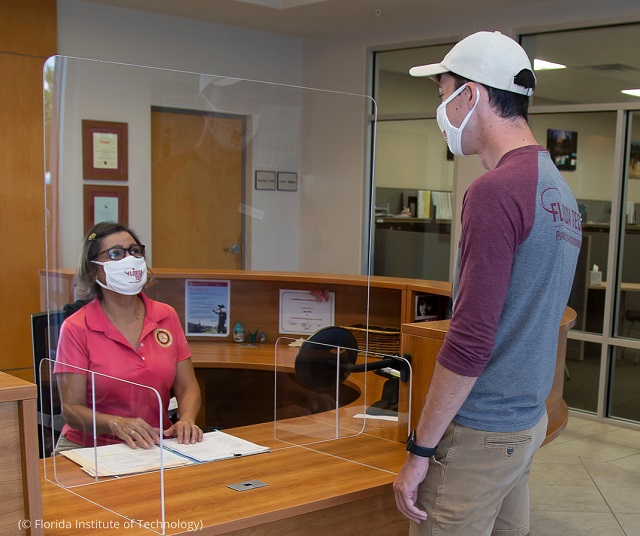As U.S. colleges and universities plan for a new academic year, they are focusing on ways to keep international students safe while furthering their educations despite the new coronavirus pandemic.
There are more than 1 million international students enrolled in U.S. higher-education institutions, according to the nonprofit Institute of International Education. They contributed more than $46 billion to the U.S. economy in 2019, according to the U.S. Department of Commerce. They are an integral part of U.S. college life and, like American students, are eager to pursue their studies. International students “contribute greatly to this country’s intellectual and cultural vibrancy,” said Dulce Dorado, director of the University of California San Diego’s international students program.
Recently, the chancellor of the University of Texas, James Milliken, echoed her comments and those of other U.S. academic leaders in his statement to international students, in which he emphasized a commitment to their educations and future careers. “Faculty, staff and students across the UT system … join me in extending the warm welcome generations of international students and scholars have experienced during their study sojourns with us,” he wrote.
Being flexible to keep students safe
To ensure learning while keeping students safe during the coronavirus pandemic, some U.S. schools will teach students remotely, for the time being. But many will offer a mix of online and in-person classes. Schools have had time to improve their online offerings and to expand student services, with specialized support for international students.
For example, the Florida Institute of Technology (Florida Tech), located in Melbourne, Florida, is in close communication with each international student, making accommodations to deadlines whenever possible if a student faces travel restrictions. Florida Tech students unable to travel to the U.S. will be able to complete their coursework remotely. Meanwhile, those who did not return to their home countries over the summer have been allowed to remain in campus housing through the fall semester, said Brian Ehrlich, vice president for enrollment management.

Plexiglass barriers in high-volume areas are among the new safety features at the Florida Institute of Technology. (© Florida Institute of Technology)
To reduce the risk of virus transmission, the school has implemented a “Florida Tech Safe” plan, which requires students on campus to follow best health practices and take specific measures to protect others should they exhibit symptoms of or test positive for COVID-19. The school will limit occupancy at its residence halls to one student per room.
Also, the school will facilitate health screenings, restrict public access to campus, mandate face coverings, install plexiglass barriers in high-volume areas and increase cleaning.
At UC San Diego, a “Return to Learn” plan will involve regular COVID-19 screenings of students, faculty and staff and incrementally repopulate the campus before the fall term begins, guided by the school’s medical researchers in conjunction with public health recommendations.
Student services’ long reach
UC San Diego’s creation of a virtual student union and other online services will help students who are unable to travel to the U.S. The school will offer webinars, flexible virtual advising hours to accommodate different time zones, access to health professionals via telemedicine, virtual counseling and discussion forums in different languages. Professional development programs for graduate students have transitioned to a virtual format.
“It will be important to ensure that students have access to resources and have equitable experiences on our campuses, no matter where they are in the world,” Dorado said.
For those who can travel, “peer mentors and coaches are reaching out to incoming international students, so they can get connected to current students and the UC San Diego community before they arrive in the U.S.,” said Dorado.
Campus officials cite the importance of overseas alumni groups, which share information with students coming to the U.S. and their parents.
Finally, at Florida Tech, UC San Diego and many other U.S. colleges, students can request deferment of their enrollment until the winter term, if needed. “We have seen a few more [requests] than normal, but not large numbers. We are hearing from students and families that they still want to pursue their education now,” Ehrlich said.
For information about opportunities to study in the U.S., find resources at EducationUSA.
Banner image: A U.S. flag flies over students as they participate in their graduation ceremony in June 2019 at Pasadena City College in Pasadena, California. (© Robyn Beck/AFP/Getty Images)







COMMENTS0
LEAVE A COMMENT
TOP